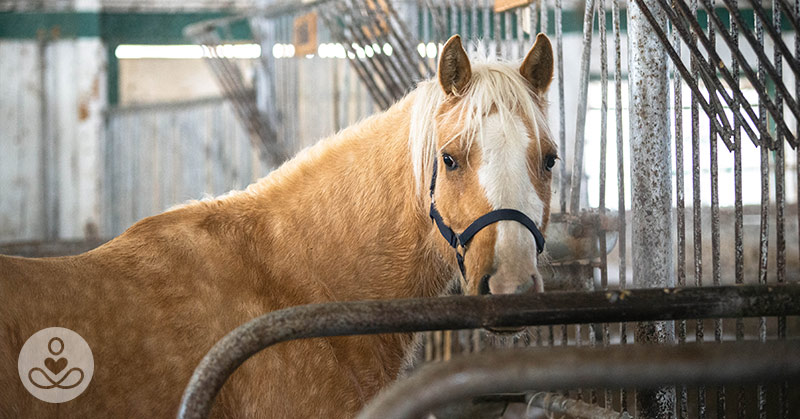Would you support the slaughter or consumption of horsemeat: yay or neigh? Well, in Japan — one of the leading importers of horsemeat and live horses for consumption — many people would probably say “yay.”
According to Humane Society International (HSI) Canada, Japan has imported approximately 9,000 tons of horsemeat. The majority of this meat comes from U.S. horses that were slaughtered in Canada. (1)
What is Japan doing with all this horsemeat?
There are a couple of uses for Japan’s imported horsemeat. The first and most important is basashi, a specialty sushi.
“The meat needs to be consumed within three days after being slaughtered in order to be eaten as sushi,” Ewa Demianowicz, senior campaign manager for HSI Canada, told The Dodo. (2)
But, people also harvest the horses’ bodies oils to use in synthetic beauty products which are then sold in countries like Japan and South Korea.
Debby Murtagh, director of research and community outreach for the Canadian Horse Defence Coalition (CHDC), illustrates the unfortunate reality:
“It is sad and difficult to understand. Japan relies on the imports to boost production to meet consumer demand… The live horses are further raised to develop marbling.”
Torturous transportation
This dark secret — an apparently lucrative business — has resulted in millions of horses suffering long trips in cramped crates from airports in Alberta and Winnipeg to Japan.
This route is due to the fact that horse slaughter is illegal in the United States. However, horses can easily be forced into the slaughter pipeline by first shipping them to Canada.
From Canada to Japan, the flight is an average of 16 to 18 hours long. Believe it or not, as outlined by the Canadian Food Inspection Agency (CFIA), horses can be made to go without food, water, or rest for up to 36 hours. (3)
Sadly, according to sources from The Animal Rescue Site, the laws that are in place to protect animals from such situations are overlooked. Why? Because of the highly lucrative profits of the horse trade. (4) But, said Demianowicz, “[if] they were to follow regulations, it would not be as lucrative of a business.”
Horsemeat: a public health risk
The horses being transported to Japan are not bred nor raised for consumption. They’re either companion, working, or sport horses.
As such, they receive routine chemical substances and veterinary drugs that humans should not consume.
However, there isn’t always necessarily a record of what a horse has consumed. This is because, in the U.S., horse owners have no legal requirement to maintain treatment records.
Racehorses are a prime example of why one shouldn’t consume horsemeat. When a racehorse’s use begins to decline, their owners may give them illegal performance-enhancing drugs which can include cocaine or cobra venom.
In Japan, veterinary pharmaceuticals you can find in U.S. horses are prohibited in food products. But, as HSI Canada highlights when it comes to imported products — like horsemeat — those same prohibitions, unfortunately, don’t apply. (1)
To learn more about the horse trade and the dangers of horsemeat consumption, visit the websites below:
- Protecting Equines
- Horse Slaughter in Canada

